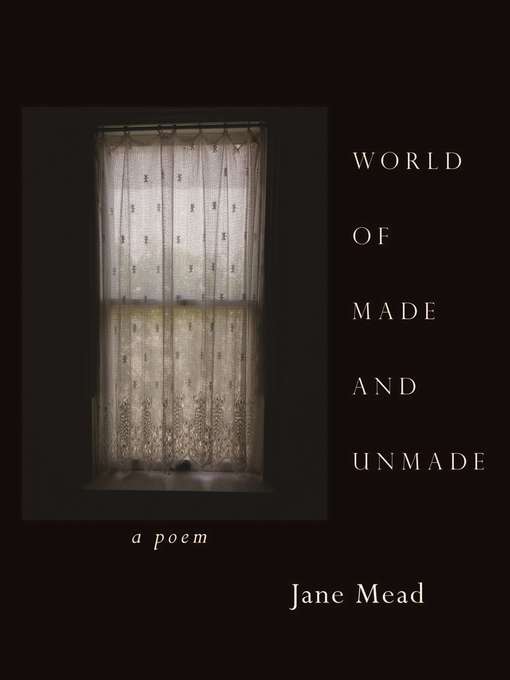Mead's fifth collection candidly and openly explores the long process that is death. These resonant poems discover what it means to live, die, and come home again. We're drawn in by sorrow and grief, but also the joys of celebrating a long life and how simple it is to find laughter and light in the quietest and darkest of moments.
- Available Now
- Newly Added eBooks
- Most Popular eBooks
- Try Something Different
- See all ebooks collections
- Available Now
- Newly Added Audiobooks
- Most Popular Audiobooks
- Try Something Different
- See all audiobooks collections
- Trending Titles
- Booktok Made Me Read It
- Find Your Way to Another World
- Diverse Reads for Kids & Teens
- Cuddle Up with a YA Romance
- Thrillers for Teens
- Feel Good Reads
- Being Young and In Love
- Baddies in Books
- Books to Rule Us All (YA)
- Read with Pride
- See all teens collections


